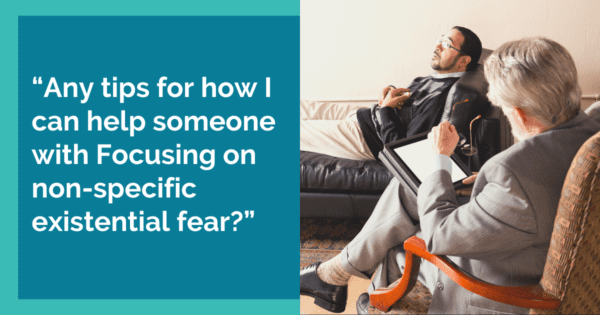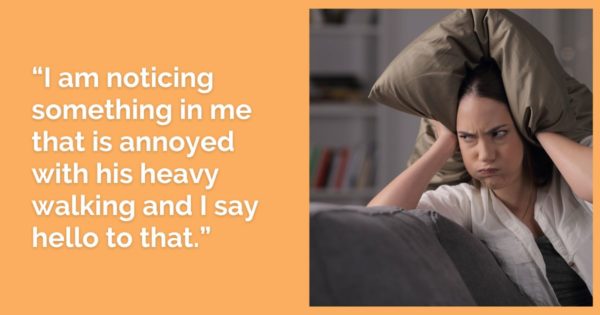“I had the feeling that my partner wasn’t really getting what I was saying.”
A Reader writes: “Recently I was focusing with an experienced partner. He reflected what I said at the beginning and I found myself saying more. It was something like, Yes, like that and blah blah blah. Then a few more interchanges occurred and he reflected again. This time, in my mind, I heard a voice that said, ‘He doesn’t get it. He’s just repeating back what I said. He’s just rephrasing my ideas at a very superficial level.’ This thought made it difficult for me to continue with Focusing.
“I wonder if you have any suggestions what to do if a voice like that comes again while I’m focusing?”
Dear Reader,
You’re probably expecting me to suggest that you say “Hello” to a voice like that and turn toward it with interested curiosity.
But I’m hearing something else going on. It sounds to me like you might be getting some information from inside, something about how that interaction at that moment wasn’t meeting a genuine need.
Not everything is “me” — a lot of what happens is “us”!
We don’t cover this enough in Focusing classes, but it really is OK to say something interactional like, “Could I check something out with me? The last few times you reflected, I wondered if you were really with me… and I don’t know if that is just me, or if something is going on for you too.”
It’s not a criticism or a judgment, it’s a wondering and a checking. The other person might say, “Actually, I did get distracted for a while, sorry, I hoped it didn’t impact you but I see that it did. I’m here now.” Or they might say, “No, I’m right here, as much as always.” Or they might even say, “I had some really bad news right before this session, I was hoping I could still be present for you but I guess I can’t…” and then you might offer to trade roles and let them be the Focuser first… and maybe not trade back today.
Many things can happen when Focusing partners are sensitive to their own needs and to each others’ needs. I love the NVC (Non-Violent Communication) method for communicating about needs in a way that doesn’t make the other person wrong.
Levels of Empathy
Another thing that may be of interest is what we can call “levels of empathy.”
Just saying back what someone is saying, with all the facts in order, is what we could call the most basic level of empathic responding. If it’s hard to be in contact with someone, we may need to be at this basic level for a while. But it isn’t the most helpful for Focusing.
The next level of empathy is to listen for the emotions and body feelings that are being expressed, and to be sure to say those back, along with whatever else gives specific meaning to those emotions.
There is an even deeper level of empathy, that Gene Gendlin calls listening for what the other person is “up against,” and why it matters to them, what they are saying.
Focuser: “He didn’t call and he didn’t even send an email.”
Companion: BASIC: “He didn’t call and he didn’t even send an email.”
DEEPER: “Something about that is hard for you, that he didn’t even call or send an email.”
It’s true you’re making a guess, but it’s not a very big one! And your Focusing partner can always correct you. You have to be really present in your own body to give this level of empathy, and it makes the process very interesting!







